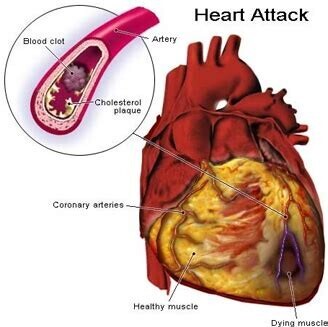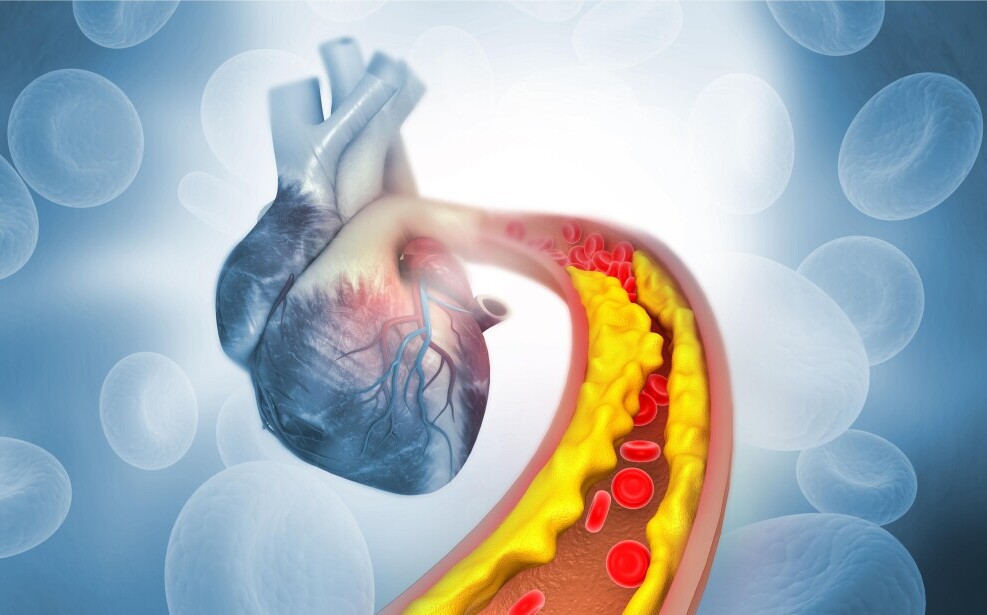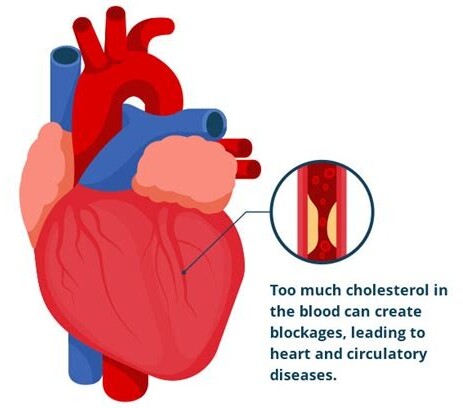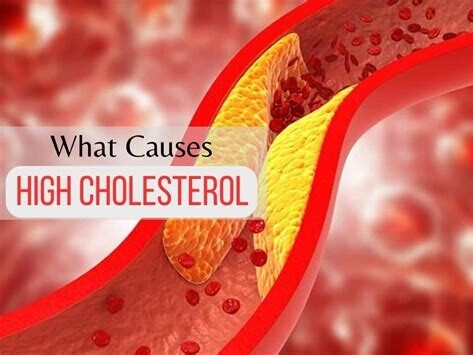Understanding cholesterol and heart health can feel like unraveling a mystery. Many people hear the term ‘cholesterol’ and immediately think of something negative. However, cholesterol plays an important role in our bodies. This article checks out how cholesterol works, the different types of cholesterol, and how healthy lifestyle changes can support heart health. It is a friendly guide with detailed information to help you make informed choices and steer through complex health issues.
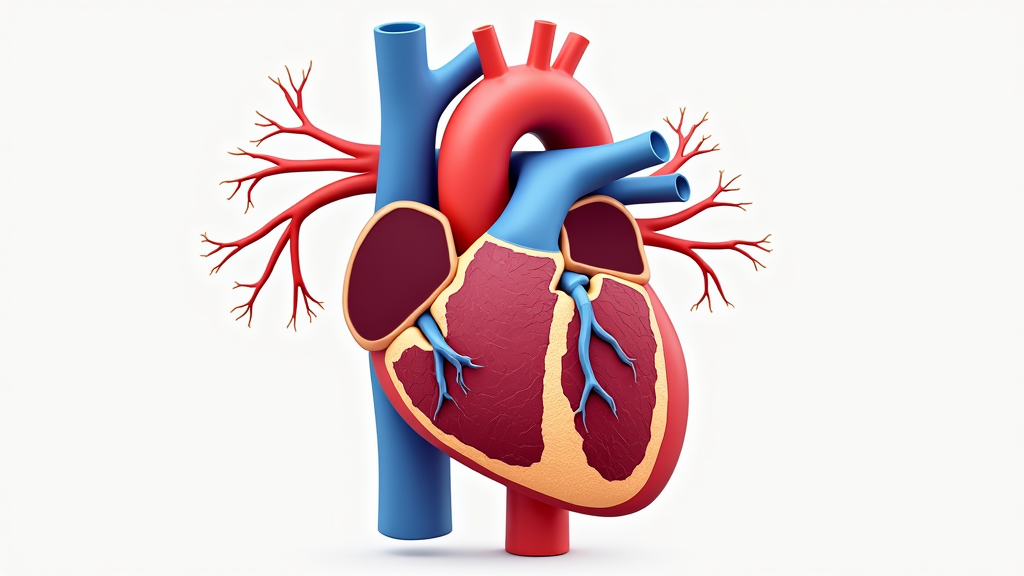
Understanding Cholesterol and Its Role in Your Body
Cholesterol is a waxy substance found in your body. It exists in every cell and is needed for many important processes. Your body uses cholesterol to make hormones, vitamin D, and substances that help digest foods. In fact, cholesterol is essential because it supports vital functions even when it carries a reputation for being problematic. At the same time, having too much of the wrong kind of cholesterol can pose risks to heart health. That is why understanding the dual nature of cholesterol is very important in making choices that promote well-being.
The two main types of cholesterol are low-density lipoprotein (LDL) and high-density lipoprotein (HDL). LDL is often referred to as the “bad” cholesterol because high levels can lead to plaque buildup in your arteries. On the other hand, HDL is seen as the “good” cholesterol because it helps remove LDL particles from your bloodstream. Maintaining a balance between these types is key to supporting a healthy and resilient heart. It is helpful to note that the body regulates cholesterol from both the food you eat, and the cholesterol produced naturally by your liver.
Because dietary sources and your liver’s own production both contribute to cholesterol levels, the balance you achieve largely depends on your overall lifestyle. Genetics and lifestyle factors mix together to determine how much cholesterol your body makes and stores. This dual origin makes regular monitoring and adjustments in your daily routine essential if you want to keep everything in check.
Getting Started with a Heart-Healthy Lifestyle
Once you grasp the basics of cholesterol, the next step is to focus on heart health. Being proactive about your lifestyle can make a significant difference. Small changes, made consistently, might lead to measurable health improvements over time. It is a gradual process where each positive shift builds upon the last to create long-term benefits.
When considering a heart-healthy lifestyle, the focus should be on integrating balanced nutrition, regular physical activity, and effective stress management into your everyday routine. Starting with a few simple adjustments can smooth the way to improved cardiovascular function. For instance, you might consider planning your meals ahead of time and scheduling daily walks so that healthy practices become a natural part of your day-to-day life.
Additionally, it is important to understand that lifestyle changes not only improve your cholesterol balance but also have a profound impact on overall well-being. As you refine your eating habits and build a regular exercise routine, you may begin to feel more energetic and focused. This positive momentum can encourage further changes, including improved sleep patterns and reduced stress levels, all of which contribute to a healthier heart.
- Assess Your Diet: Evaluate what you eat on a daily basis. Identify sources of saturated fats, trans fats, and processed carbohydrates that can elevate LDL levels. Replacing these foods with whole grains, fruits, and vegetables supports better heart health and helps regulate cholesterol levels in the long term.
- Move Regularly: Physical activity not only helps control weight, but it can also help raise HDL levels. Even moderate exercise such as a brisk walk for 30 minutes most days creates a positive impact on your cardiovascular system and enhances overall mood.
- Monitor Cholesterol Levels: Regular check-ups with your doctor ensure you understand your numbers. Keeping track of cholesterol readings can help you adjust your healthy strategy over time and detect any emerging issues before they become serious.
- Manage Stress: High stress may indirectly affect cholesterol through unhealthy coping habits like overeating or reduced physical activity. Techniques such as meditation, deep breathing exercises, or even pursuing a favorite hobby can help relieve stress and improve heart function.
- Limit Alcohol and Avoid Smoking: Smoking is harmful to the heart, and excessive alcohol can increase blood pressure and cholesterol levels. Moderation or complete abstinence from these substances goes a long way in supporting overall cardiovascular wellness.
Adopting these habits can serve as the foundation for long-term cardiovascular wellness. Every small change you make creates a ripple effect that builds a more resilient system over time. With each improvement, you pave the road toward a lifestyle that not only supports cholesterol balance but also overall physical and mental health.
Important Factors to Consider When Managing Cholesterol
Managing cholesterol is not solely about what you eat or how much you exercise; several factors come into play. Being aware of these elements may help you develop a balanced strategy for heart health. A better perspective on these elements can also empower you to make adjustments when needed.
- Dietary Choices: High-fat foods, particularly those loaded with saturated and trans fats, can negatively affect your cholesterol levels. Switching to healthier fats, such as those found in nuts, seeds, and olive oil, is a smart move to keep cholesterol in check.
- Physical Activity: Regular exercise plays a crucial role by increasing the beneficial HDL and reducing the harmful LDL. Conversely, a sedentary lifestyle can lead to imbalances over time, making it very important to remain active on a consistent basis.
- Genetics: Family history plays a contributing role. Some people might inherit genes that predispose them to higher cholesterol levels, making lifestyle changes even more important in managing the condition successfully.
- Medications: For some individuals, dietary adjustments and exercise are not enough. Doctors might recommend medications, such as statins, which help lower LDL levels. In these cases, regular communication with your healthcare provider is crucial to ensure the treatment works in tandem with your lifestyle.
Dietary Choices
What you eat directly impacts your cholesterol levels. Meals that feature a variety of fruits, vegetables, whole grains, and lean proteins can promote a healthier lipid profile overall. Often, replacing fried foods and high-fat dairy products with better alternatives leads to noticeable improvements over time. Making such choices consistently helps build a stronger base for your long-term heart health.
Physical Activity
Physical activity contributes to overall well-being by helping you maintain a healthy weight and improving blood circulation. Exercise acts not only as a means to lower LDL but also as a boost for raising HDL levels. Whether it is cycling, swimming, or simply taking a brisk walk, finding an activity you enjoy can make your routine much more sustainable. The benefits of regular movement extend well beyond heart health, positively impacting mood and energy levels too.
The Role of Medications
In cases where cholesterol levels are alarmingly high, doctors might explain that medications can be beneficial alongside lifestyle adjustments. When medication is recommended, it is typically paired with guidance on diet and exercise to help achieve the best overall results. Following your prescribed regimen is very important for maximizing the health benefits while ensuring the medications work effectively with your daily habits.
Keeping Up with Regular Check-Ups
Frequent medical check-ups provide you with insights into how well your body is adapting to changes. Blood tests, including thorough cholesterol screenings, are vital tools for tracking progress. This regular oversight not only helps in making timely adjustments to your treatment plan but also reinforces the importance of staying on top of your health. Being informed and proactive is a cornerstone of successful cholesterol management.
These factors form an interlocking system of behaviors and choices that all support better heart health. Recognizing where you stand and continuously working on improvements builds the foundation for a stronger cardiovascular system over the long haul.
Tips for Optimizing Your Heart Health
After you have implemented the basics of dietary changes and physical activity, there are further strategies that can step up your heart health. These advanced tips often involve fine-tuning your lifestyle and being mindful of additional nutritional factors that affect heart function.
Add Omega-3 Fatty Acids: Foods such as salmon, walnuts, and flaxseed are rich in omega-3 fatty acids, which have been linked to lower LDL levels and reduced inflammation. Their inclusion in your diet may improve overall heart function and support a balanced lipid profile.
Keep a Nutrition Diary: Tracking your meals can provide valuable insights into your eating habits. Many people find it very helpful to note what and when they eat and then compare these records with changes in their cholesterol readings. This method helps reveal subtle patterns, ensuring that you are more aware of how your food choices impact your health.
Consider Fiber-Rich Foods: Soluble fiber, which you can find in oats, beans, and certain fruits, helps reduce cholesterol absorption in the bloodstream. Integrating these foods into your daily meals is an effective way to maintain healthier cholesterol levels over time. This dietary approach works as part of a broader strategy to support not just heart health, but overall wellness as well.
Stay Hydrated and Avoid Sugary Drinks: Keeping a proper balance of fluids in your body is essential. Proper hydration supports overall health, and cutting back on sugary beverages can also contribute to a healthier lipid profile. Replacing high-calorie drinks with water or unsweetened alternatives benefits your body in several important ways.
Beyond these practical tips, considering additional strategies such as managing sleep schedules and incorporating mindfulness practices can further step up your overall heart health. By experimenting with a variety of healthy habits and consistently following up with your doctor, you can adjust your lifestyle in a way that yields better outcomes over time.
Core Strategies for a Healthier Heart
Returning to the fundamentals is always a wise move. For a healthy heart, focusing on consistent habits is key. This section summarizes the basic strategies that expert recommendations have proven to support long-term cardiovascular health.
Consider these everyday approaches as your roadmap:
- Balanced Diet: Prioritize whole foods over processed ones. A balanced mix of vegetables, lean proteins, and whole grains gives your body the essential nutrients it needs to function at its best.
- Steady Exercise Routine: Incorporate a variety of physical activities into your weekly schedule. A combination of cardio, strength training, and flexibility exercises helps boost overall fitness and regulate cholesterol levels.
- Stress Management: Engage in activities that help you relax and unwind. Whether it is reading, taking nature walks, or simply spending quiet time at home, finding your personalized stress-relief methods is really important for maintaining overall wellbeing.
- Regular Health Screenings: Keep up with annual check-ups and cholesterol tests. These visits not only help you track progress but also spotlight any changes that might require prompt professional advice.
- Smart Cooking Practices: Opt for healthier cooking methods, such as baking or grilling, instead of frying. This strategy helps maintain the nutritional quality of your meals while reducing harmful fats.
When these strategies are consistently applied, they form the core of an effective approach to improving heart health. By concentrating on everyday habits, you encourage both short-term improvements and long-term stability in your cardiovascular system.
Frequently Asked Questions
Below are some common questions that often arise when discussing cholesterol and heart health. They address frequently encountered concerns and provide clear, straightforward answers.
Question: What is the difference between LDL and HDL cholesterol?
Answer: LDL is known as the bad cholesterol because high levels can lead to fat deposits forming in artery walls. HDL is the good cholesterol that helps remove LDL particles from the bloodstream. Finding the right balance between the two is very important for supporting a healthy cardiovascular system.
Question: Can changing my diet really lower my cholesterol?
Answer: Yes, adopting smarter dietary choices can have a significant impact on your cholesterol levels. Reducing the intake of saturated fats and incorporating more fiber-rich foods can help lower LDL while boosting HDL.
Question: How much exercise is needed to support heart health?
Answer: Most guidelines recommend about 30 minutes of moderate physical activity most days. Consistency is key whether you engage in walking, cycling, or swimming.
Question: Are medications always necessary for managing high cholesterol?
Answer: Not everyone will need medication. For many, dietary and lifestyle changes are enough. However, some individuals with a genetic predisposition or extremely high cholesterol levels may require medications under a doctor’s supervision.
Question: How frequently should cholesterol levels be checked?
Answer: If you have risk factors or known high cholesterol, it might be advised to have your levels monitored once or twice a year. Your doctor can recommend an appropriate schedule based on your individual health profile.
Final Thoughts on Achieving a Healthy Heart
Putting all the pieces together, maintaining a healthy heart is all about making consistent, informed decisions. Each dietary adjustment, every bit of physical activity, and all the subtle changes in stress management combine to create a robust defense for your cardiovascular system. In this adventure towards better health, it is important to remain patient and persistent. The journey towards a healthier heart is not only about reducing numbers on a cholesterol test; it is about laying the groundwork for a more energetic and fulfilling life.
Taking time each day to check in with your habits, nurturing a balanced diet, and staying active all contribute to long-lasting improvements. While the improvements might sometimes seem small, over time these modest changes can come to life and make a big difference. Regular follow-ups with your healthcare provider can also catch potential problems early, ensuring that your efforts lead to real, measurable benefits. Remember that every positive change you make is a step toward a stronger, healthier heart.
Wrapping Up
Understanding cholesterol and its impact on heart health is empowering. With clear knowledge and a commitment to a balanced lifestyle, you can take control of your cardiovascular wellness. Making informed choices regarding your diet, physical activity, and stress management can lead to measurable improvements over time. Whether you are just starting to address cholesterol concerns or have been managing them for a while, the key is to remain consistent and allow gradual improvements to shape your overall health.
Small steps today can lead to really important big health benefits tomorrow. Embrace the process and appreciate the gradual improvements that come from a steadfast commitment to well-being. Your heart health journey is filled with potential, and with every mindful decision, you set the stage for a vibrant future. Bottom line: a multifaceted approach that blends sound dietary choices, regular activity, and attentive self-care will help you achieve and maintain optimal heart health.

